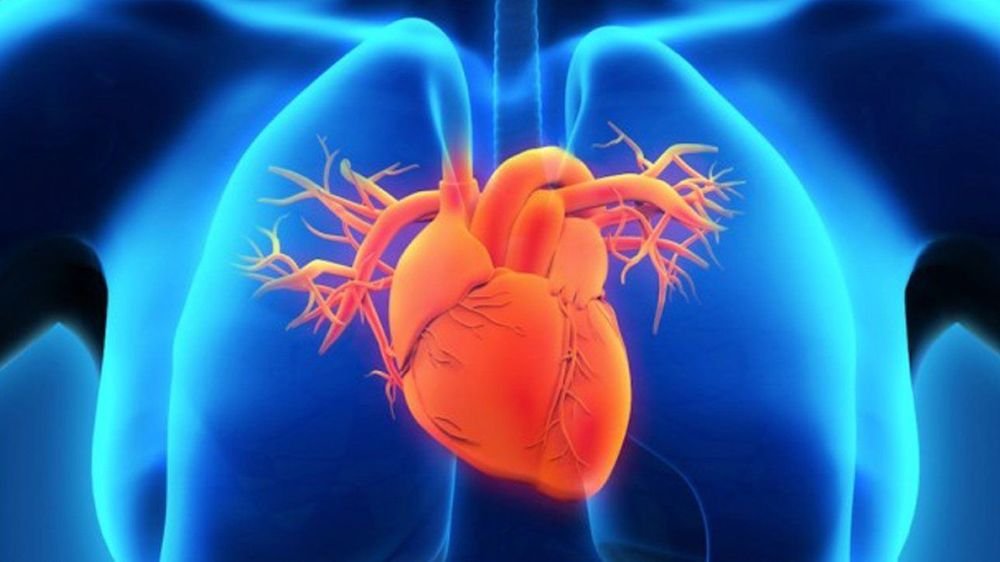This is an automatically translated article.
Posted by Master, Doctor Tran Thi Huyen Trang - Laboratory Doctor - Laboratory Department - Vinmec Times City International Hospital
Heart failure is a medical condition in which cardiac output is inadequate to meet the body's oxygen needs in all living situations. Heart failure is the final common pathway of most cardiovascular diseases. Patients with heart failure will have reduced functioning ability, reduced quality of life, depending on the level, they will need different support. In addition, patients with severe heart failure are at high risk of dying from arrhythmias and episodes of decompensated heart failure. Early and accurate diagnosis of heart failure remains difficult based on clinical signs alone, as they are often nonspecific. Therefore, NT-proBNP Test is used for screening, early diagnosis and monitoring of heart failure treatment.
1. What is the NT-proBNP test?
Natriuretic peptides are structurally similar peptides, including 2 types:
Type A: ANP-of atrial origin, produced only by myocardial cells of the atria Type B: BNP- was first found In brain tissue, both atrial and ventricular myocytes produce ANP and BNP promotes diuresis, increasing urinary sodium excretion. BNP is released from the ventricles in the presence of an increase in pressure or volume that causes arteriovenous dilation, decreased levels of vasoconstrictor neurohormones, and sodium retention.
The precursor of BNP is a pre-pro-peptide consisting of 134 amino acids. The pre-pro-peptide cleaved to proBNP and a signal peptide fragment. When released into the bloodstream, proBNP is hydrolyzed to NT-proBNP (76 amino acids) and BNP (32 amino acids).
The half-life of BNP is about 13 to 20 minutes, and NT-proBNP is about 25 to 70 minutes, so the NT-proBNP value is usually higher than that of BNP. BNP and NT-proBNp are excreted by the kidneys to a similar extent and both are increased with renal failure and decreased with diuretics, ACE inhibitors, and β-blockers.
2. When is the NT-proBNP test ordered?
2.1. Diagnosis of heart failure
Differential diagnosis and prognosis of heart failure in patients with acute dyspnea. Confirm the diagnosis of acute heart failure or exclude heart failure and stratify the risk in patients at risk for heart failure (diabetes, hypertension, coronary artery disease), in whom heart failure has been diagnosed; differential diagnosis of heart failure from other conditions (eg, lung disease).
2.2. Monitor progress and effectiveness of heart failure treatment
Long-term follow-up of patients with chronic heart failure. Assess the risk of recurrent heart failure.

Sàng lọc suy tim giúp giảm nguy cơ suy tim tái phát
2.3. Heart failure prognosis
The NT-proBNP test has great prognostic value in all stages of heart failure (cardiovascular patients need to do this test at discharge)
2.4. Heart failure screening
Screening for heart failure in the community, paying special attention to groups of people at high risk of heart disease such as the elderly over 60 years old, patients with diabetes mellitus, hypertension, coronary heart disease, obesity, family history , before and after surgery of organs ...
3. Reference value NT-proBNP in heart failure
Normal human reference value of plasma NT-proBNP varies with age:
< 50 years old is 50 pg/mL
50-75 years old is 75-100 pg/mL
> 75 years old is 250-300 pg /mL
The optimal cut-off point to rule out chronic heart failure is NT-proBNP < 125 pg/mL.
Optimal cut-off point excluding acute heart failure with dyspnea, NT-proBNP < 300 pg/mL
The optimal cut-off point of nt-proBNP for diagnosing acute heart failure in dyspnea patients by age is :
<50t > 450pg/ml
50 – 75t > 900pg/ml
>75t > 1,800pg/ml
4. Clinical significance of NT-proBNP in treatment monitoring
Measurement of NT-proBNP test levels should be done at least 2 times (first within 24 hours of admission), the second time before discharge. If a 30% reduction is achieved, the prognosis is good and the treatment is effective.
If the NT-proBNP concentration is high > 5000 pg/L, the prognosis is high and the treatment effect is not good. The higher this concentration, the worse the prognosis. With NT-proBNP concentration > 10,000 ng/L, heart failure is very severe and the risk of death is very high, requiring hospitalization and close monitoring.
For outpatients, use a cutt-off threshold of 1000pg/L. The goal of treatment should be to bring the concentration down below 1000pg/L.
Increased plasma NT-proBNP in chronic kidney disease due to decreased renal excretion of this peptide.
NT-proBNP may be elevated in some conditions other than heart failure: cardiomyopathy, valvular heart disease, atrial arrhythmias, anemia, serious illness (septic shock, shock from other causes), stroke due to cerebral infarction, cardiopulmonary syndromes...
Quantification of NT-proBNP has important value in diagnosing heart failure. Accordingly, to meet the needs of customers, this quantification is also used in the Heart Failure Examination Package on the system of Vinmec International General Hospitals. Accordingly, the medical examination and treatment service here has received many positive feedbacks from customers thanks to its outstanding advantages. Participating in the package, customers will receive: Cardiology specialist examination, complete blood cell analysis by automatic counter, quantitative glucose, Uric acid, Creatinine, Albumin, NT-proBNP, LDL-C, HbA1c, Triglyceride, Cholesterol, AST (GOT) activity measurement, ALT (GPT) activity measurement, electrolytes, electrocardiogram, 24-hour urinalysis, straight chest x-ray, echocardiogram, transpericardial Chest wall, stress echocardiography, ionized calcium quantification,...
Choosing Vinmec International General Hospital to screen for heart failure brings many benefits to customers:
Medical team the doctor is a leading expert in the industry, with high professional qualifications, wholeheartedly for the patient; Comprehensive and professional medical examination, consultation and treatment services; System of modern equipment, supporting effective diagnosis and treatment of cardiovascular diseases; Modern medical examination and treatment space, maximum sterilization, ensuring privacy.
Please dial HOTLINE for more information or register for an appointment HERE. Download MyVinmec app to make appointments faster and to manage your bookings easily.













